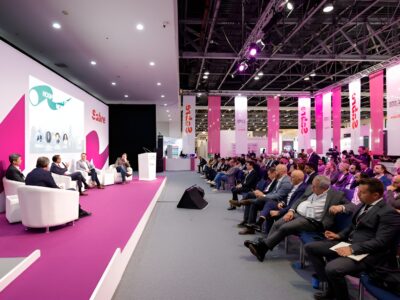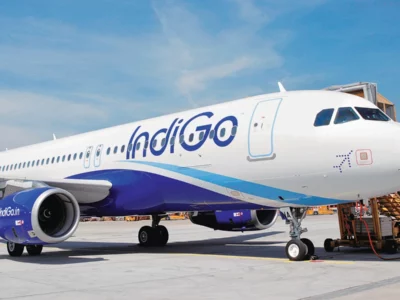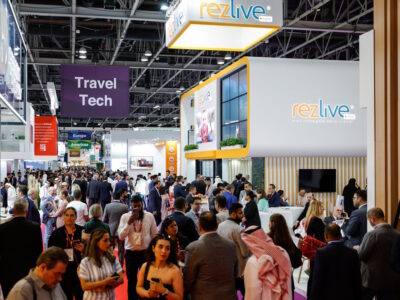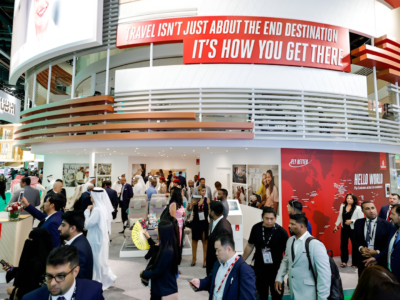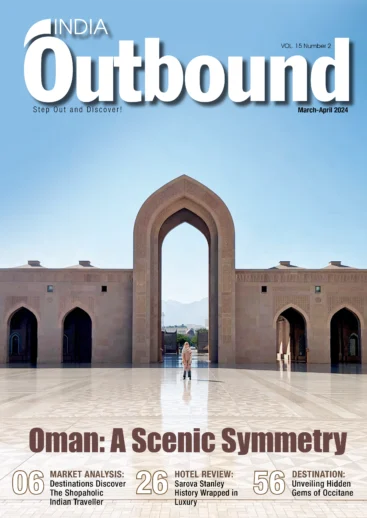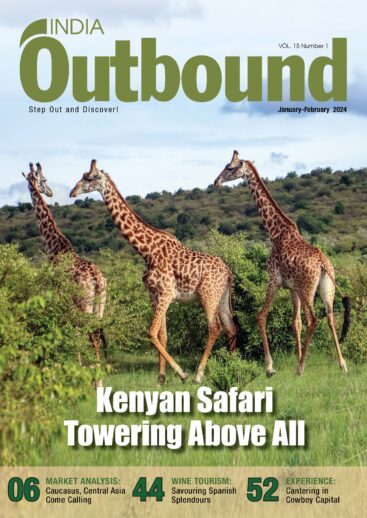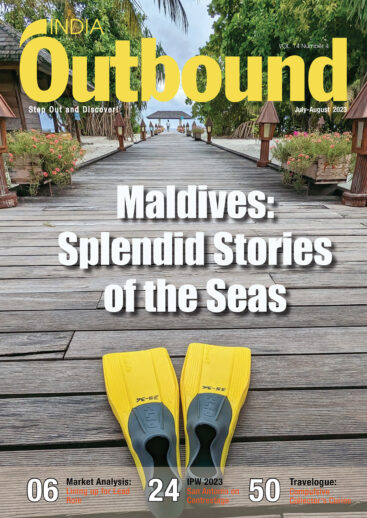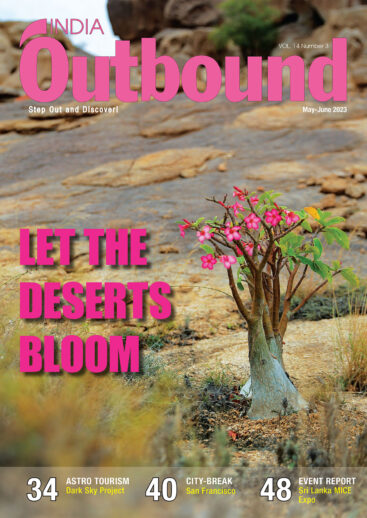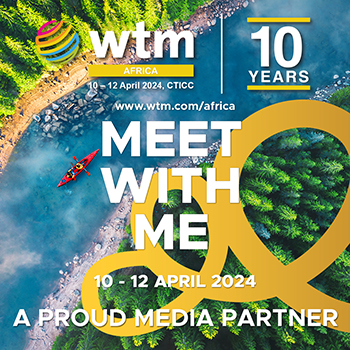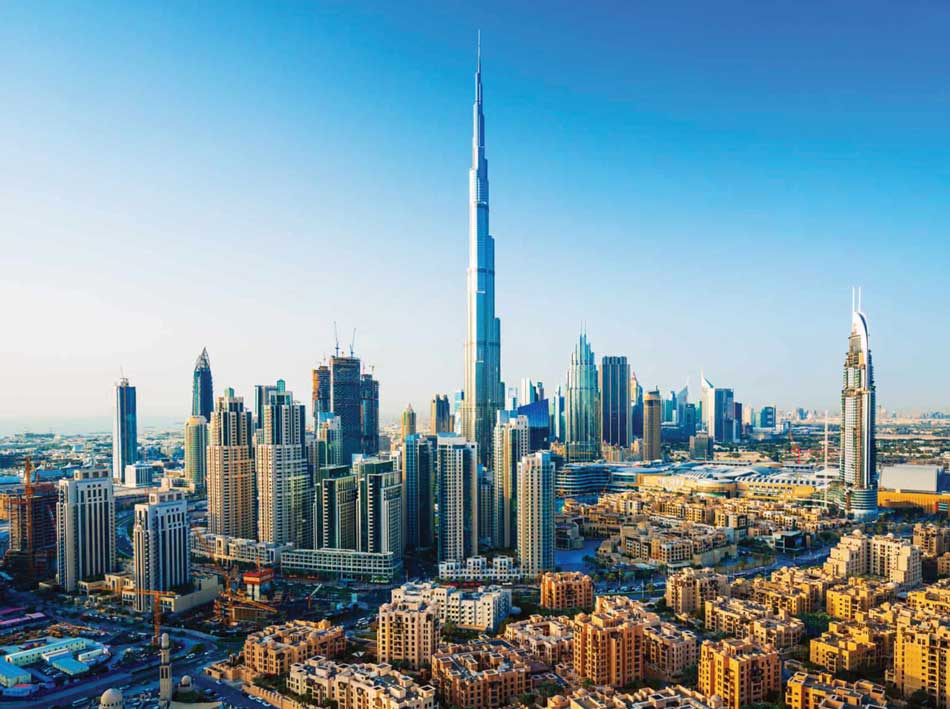
According to data released by STR, three most active cities in hotel construction are Dubai, Makkah and Doha
The numbers are big enough to send eyes popping out. According to a recent survey, the six GCC countries plan to invest USD 4.5 billion in the current year for adding to their already substantial hotel inventory. Billions of dollars are also being spent across the entire GCC as the six countries race each other in setting up tourism infrastructure – be it hotels and resorts, entertainment parks, airports, cruise ports or new adventure activities for tourists. New anything.
The biggest kid on the GCC block, Saudi Arabia, is targeting to add 80,000 hotel rooms just this year and a mind-boggling 500,000 by the year 2030, as part of its Vision 2030, which is a comprehensive plan for modernising and diversifying the Saudi economy away from the current dependence on oil. Set out by Crown Prince Mohamed bin Salman or MBS as the defacto ruler of the Kingdom is known, the Vision 2030 envisages everything on an XXL scale. For instance, it has set an ambitious target of raising the contribution of tourism to Saudi GDP from the current 3 pc to over 10 pc by 2030.
Under the Vision 2030, Saudi Arabia seeks to attract 100 million local and international visitors annually by 2030, with the tourism sector generating an additional one million jobs and boosting total employment in the industry to 1.6 million jobs.
To reach his ambitious goals, by far the most aggressive and challenging in any country, MBS has spared no resources. He has set aside a hefty USD 1 trillion for investment in tourism and hospitality by 2030.
According to data aggregator STR, the UAE generated the highest value of cumulative hospitality-related contracts in the GCC last year, followed by Saudi Arabia. The combined value of UAE and KSA projects accounted for more than 90 pc of all hospitality contracts awarded in the region during 2021. According to data released by STR, more than 169,000 pipeline rooms are currently under contract across the Middle East, in which the three most active cities are Dubai, Makkah and Doha.
According to new research commissioned by Arabian Travel Market (ATM), conducted at the end of 2021 by STR, Makkah and Doha are both expanding their hotel room inventory by 76 pc, followed by Riyadh, Medina and Muscat with 66 pc, 60 pc and 59 pc growth respectively.
In Dubai, rooms growth stands at 26 pc, which is still extraordinary, considering its existing base and following years of continuous hotel development – it is still more than double the global average.
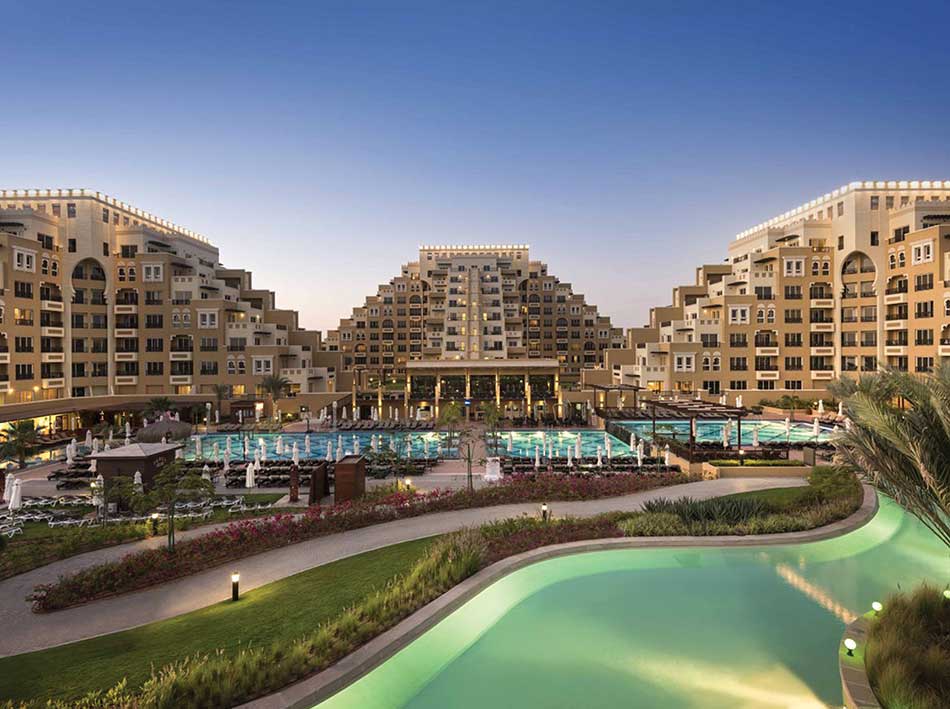
Rixos Bab Al Bahr, Ras Al Khaimah
“With the global average sitting at 12 pc, we are witnessing multiple GCC destinations growing at six times those rates,” says Danielle Curtis, exhibition director of ATM. “These figures coupled with the ongoing relaxation in travel restrictions, will undoubtedly encourage travel professionals throughout the Middle East and further afield. As such we are expecting a substantial increase in the number of participants at our live event this year, especially Saudi Arabia, Qatar, Oman and the UAE,” she added.
Analysts from real estate consultancy firm Colliers International observe that although the GCC’s transactional market has been less active than its counterparts historically, recent sales such as the Address Portfolio (USD 500 million in 2019) and Aldar Properties’ acquisition of Rixos Bab Al Bahr (USD 205 million in 2022) are indicative of future growth. Their research predicts that the GCC transactional market will continue to mature as regional tourism markets attain a stabilised development phase.
UAE’s united focus on tourism
Though not on the same scale as its larger neighbour, the United Arab Emirates (UAE) too is in the midst of implementation of its own ambitious spending plans to boost tourism.
Almost each of the seven emirates has lined up its own plans for adding hotel rooms, attractions, adventure tourism and the like to keep pace with the leaders.
The mood in the UAE is especially upbeat as its performance in 2021 was better than initially envisaged with strong pent-up demand being unlocked in both leisure and commercial tourism. The hotel occupancy rates continued to rise steadily throughout the year thanks to the Expo2020 in Dubai that began in October 2021 and concluded on March 31, 2022. With over 23 million persons visiting the Expo alone, Dubai raced ahead to become the world’s busiest international airport in 2021.
Growth in hotel room inventory GCC (2021)
With the confidence of the UAE on the upswing, the country has major plans for tourism development, notably theme parks, gigantesque shopping centres and hundreds of hotels, besides the world’s first Virgin Hyperloop transit system. Also, since mid-2021, a number of hotel projects that had been delayed due to the pandemic, have been progressively completed, with many more coming up in the weeks ahead. For instance, Hilton opened its property in Yas Island, Abu Dhabi, while IHG and Radisson are all set to launch their mega-properties in Ras Al Khaimah in a few months from now. While Dubai has the heaviest concentration of hotels in the UAE, Abu Dhabi comes in second. These two emirates dominate the tourism sector and have benefited the most from increasing visitor numbers and investment.
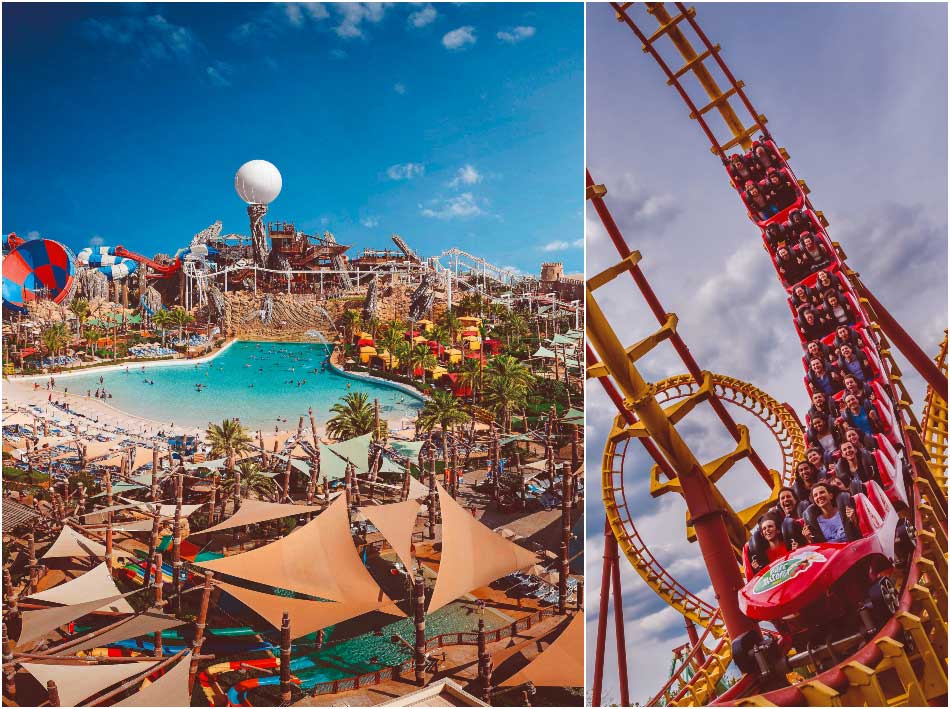
Yas Island is a leading entertainment destination in GCC
Yas Island is currently in a frenzy of construction. In addition to the existing three world-class theme parks, Yas Island has also announced a new park, the SeaWorld Abu Dhabi, in collaboration with SeaWorld Parks & Entertainment. ‘‘On track for completion in 2022, SeaWorld Abu Dhabi will bring the next generation of marine life theme parks to Yas Island. It will feature the world’s largest and most expansive marine-life aquarium, housing more than 68,000 marine animals. It will feature six different realms in a unique design offering immersive experiences as well as dynamic habitats that will house different species together, as they are in their natural habitat. The SeaWorld experience will tell a unified “One Ocean” story based on the interconnectivity between all life on earth and our oceans,’’ Liam Findlay, CEO of Experience Hub and spokesperson of Yas Island tells India Outbound.
The Island, just off the coast of Abu Dhabi, has become a popular global destination for theme park lovers, notably the visitors from India, for whom Yas Island represents a comprehensive family destination. It has some unique attractions such as Ferrari World Abu Dhabi, the one-of-akind waterpark, Yas Waterworld as well as the immersive indoor theme park Warner Bros. World, Abu Dhabi. The three parks have enabled Yas Island to make a prominent place for itself in the bucket list of a number of Indian families.
Almost next door to Yas Island, and in the UAE itself, another major theme park cluster is Dubai Parks and Resorts, which has been increasingly adding attractions to its collection. The latest such addition came on January 2021,2022, at Motiongate Dubai, the region’s largest Hollywood inspired theme park. Motiongate now is home to the world’s first rollercoaster inspired by Lionsgate’s global hit action John Wick franchise and the world’s fastest single-car spinning rollercoaster inspired by the popular twists and turns of heist thriller franchise Now You See Me, both in the Lionsgate zone in the theme park.
The launch of these two, world first rollercoasters will earn Motiongate Dubai the impressive record for the most rollercoasters in a single theme park in the Middle East, says Fernando Eiroa, CEO of Dubai Holding Entertainment, the holding company of Dubai Parks and Resorts.
“Dubai continues to be a leader in the travel and tourism sector, with a reputation for delivering pioneering projects and landmarks. The opening of the world’s first John Wick rollercoaster, the world’s fastest spinning rollercoaster and the region’s only LEGO themed Hotel are an example of the breadth and diversity of entertainment experiences in Dubai. We are confident that these new offerings will contribute to further enhancing Dubai’s competitiveness as one of the leading international tourism destinations in the world,” says Eiroa.

Dubai International Airport was busiest in 2021
UAE beyond Dubai and Abu Dhabi
But the boom and sky-high ambitions are no longer restricted to only Dubai and Abu Dhabi. Even other emirates like Sharjah or Ras Al Khaimah have been adding capacity to their tourism infrastructure and have even bigger plans ahead.
A few months ago, Ras Al Khaimah Tourism Development Authority (RAKTDA) announced over 20 sustainable tourism development initiatives across the Emirate with investment of AED 500 million. The projects are based on RAK’s new destination strategy that focuses on nature, leisure, adventure, accessibility and authenticity. In addition, a strong pipeline of new hotels is planned as players like Movenpick, Sofitel, Intercontinental and Radisson are expected to add over 4,000 rooms to the existing inventory over the next three years. “In 2021, we had new two new properties open during the pandemic, including the Hamilton, the biggest Hamilton in the world. Biggest rooms, all sea views, biggest 750 metre of beach, and the Radisson, another 4-star, beautiful property. An Intercontinental hotel, another luxury upscale property, opened in February, and a Movenpick will be open in May-June,’’ Iyad Rasbey, executive director of RAKTDA tells India Outbound.
Qatar & beyond
The construction frenzy has been on even in neighbouring Qatar which is now in the last lap of preparations before it welcomes 32 qualifying teams for the FIFA World Cup Football Championship later this year. With this being the first time that the popular championship will be held in this part of the world, Qatar is rightly banking on hundreds of thousands of football fans and other visitors to turn up to watch the world’s single largest sporting fiesta.
In order to serve the football fans, Qatar has been aggressively ramping up its hotel industry, adding thousands of rooms. But its ambitions do not end with the FIFA World Cup. The country’s rulers have also decided to use the occasion to pursue their drive to diversify the Qatari economy away from fossil fuel and tourism is definitely one of the key sectors for Qatar to meet the goals that it has set for itself.
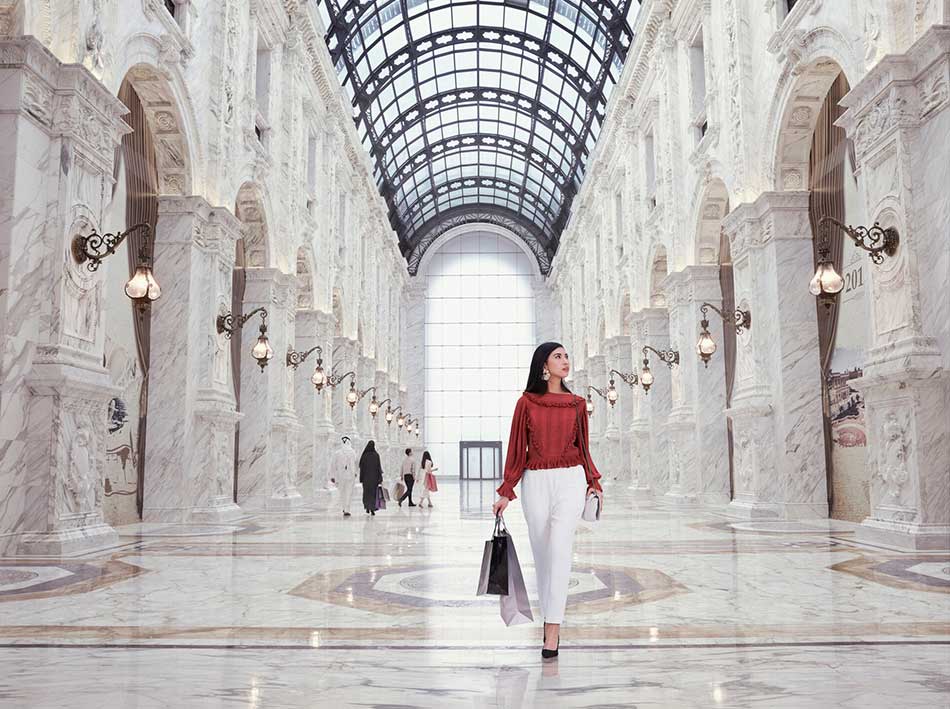
Qatar shopping mall
Qatari capital Doha is on track to deliver 23,000 hotel rooms pre- and post-World Cup 2022, adding to the country’s burgeoning hotel property portfolio. “Whilst the actual numbers may not seem particularly significant in comparison to the global hotel room pipeline, the growth above existing supply is staggering and underlines government strategy to diversify their economies away from hydrocarbon receipts and their confidence in the growth of tourism throughout the region,” says Curtis of ATM.
The rise in investment is not limited to the GCC, but similar trends have been observed by analysts across the globe. First, many hotels, entertainment parks and other tourism oriented sites used the periods of extended lockdowns to go in for a massive renovation and modernisation. Though no data is yet available, but anecdotal evidence from countries as afar as France, China, United States or Australia suggests that billions of dollars may have been spent in this activity globally since early 2020.
The desire to invest in renovation or creating fresh capacity has since then been boosted as tourists began moving around and the industry saw an uptake in demand gradually in 2021 and which is clearly accelerating this year. For instance, the revenue per available room in Americas, relative to 2019, rose sharply from 50 pc in 2020 to 79 pc, says STR.
According to the report, there are almost 2.5 million hotel rooms currently under construction around the world. “Markets that are leveraging the current operating environment to transform and augment their position in the tourism marketplace stand to see outsized demand and investment growth. With an increasing number of investors eagerly seeking assets that can generate income and simultaneously serve as a formidable hedge against inflation, the lodging industry will benefit from the plentiful capital on hand ready for deployment,’’ STR adds.








